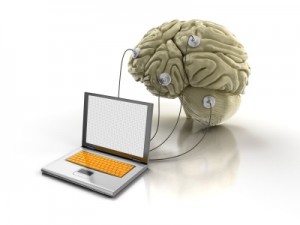Study: Cognitive Training in Mild Cognitive Impairment (MCI)
 We just came across a new scientific study on the value and limitations of cognitive training in Mild Cognitive Impairment (MCI), based on a program of cognitive exercises provided by Lumos Labs (developers of lumosity.com).
We just came across a new scientific study on the value and limitations of cognitive training in Mild Cognitive Impairment (MCI), based on a program of cognitive exercises provided by Lumos Labs (developers of lumosity.com).
Study: Computerised Cognitive Training for Older Persons With Mild Cognitive Impairment: A Pilot Study Using a Randomised Controlled Trial Design (Brain Impairment):
Abstract: The results of a pilot randomised controlled trial of computerised cognitive training in older adults with mild cognitive impairment (MCI) are reported. Participants (N = 25) were randomised into either the treatment or waitlist training groups. Sixteen participants completed the 30-session computerised cognitive training program using exercises that target a range of cognitive functions including attention, processing speed, visual memory and executive functions. It was hypothesised that participants would improve with practice on the trained tasks, that the benefits of training would generalise to nontrained neuropsychological measures, and that training would result in improved perceptions of memory and memory functioning when compared with waitlist controls. Results indicated that participants were able to improve their performance across a range of tasks with training. There was some evidence of generalisation of training to a measure of visual sustained attention. There were no significant effects of training on self-reported everyday memory functioning or mood. The results are discussed along with suggestions for future research.
For perspective, here is an excellent review published in 2010: Exercising the brain to avoid cognitive decline: examining the evidence (Future Medicine).
Overall Summary: Dementias and related cognitive disorders of the brain are strongly age-associated and prevalence is expected to rise dramatically with a rapidly aging population. As a result, there has been increasing attention on the prevention and treatment of cognitive decline associated with these conditions. A number of approaches have been designed to maintain and strengthen the cognitive capacity of the healthy, as well as the pathologically damaged brain. Evidence suggests that despite advancing age, our brains, and thus our cognitive functions, retain the ability to be maintained and strengthened through the biological process of neuroplasticity. With this opportunity, a new commercial field of ‘brain fitness’ has been launched to bring to the market training exercises and games that maintain and strengthen cognitive abilities in adulthood. However, the majority of brain fitness methods and products now marketed and sold to consumers have scant scientific evidence to support their effectiveness.
Summary of MCI section: In summary, in all three studies that enlisted individuals with MCI into a cognitive training intervention, participants benefited from the treatment in some way, including improvements in near transfer tasks (e.g., recall of lists or face–name associations) to domains as far reaching as activities of daily living and subjective measures of memory, mood and overall well-being. Although these studies suggest enhancement effects, longitudinal studies are required to determine whether interventions prevent or slow the progression to AD.



Thanks for this timely article on using brain exercises to reduce overall decline of the mind.
There was a recent article about brain decline starting at age 45 (http://bit.ly/xMYkCK).
It’s totally important to combine brain exercises with enhanced diet to maximize effectiveness of both (synergy).
It would be interesting to see how much mental exercises boost the success rate percentage of different tasks — I have looked at various research in the past.
The amount seems to vary.
What does the latest research statistics indicate?
Fair winds and light laughter,
Sunny Lam